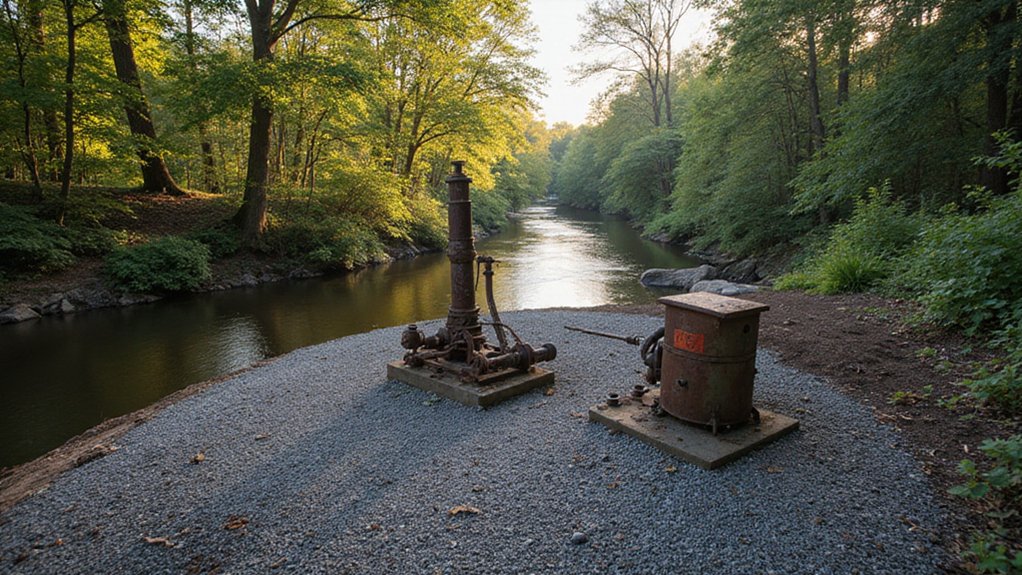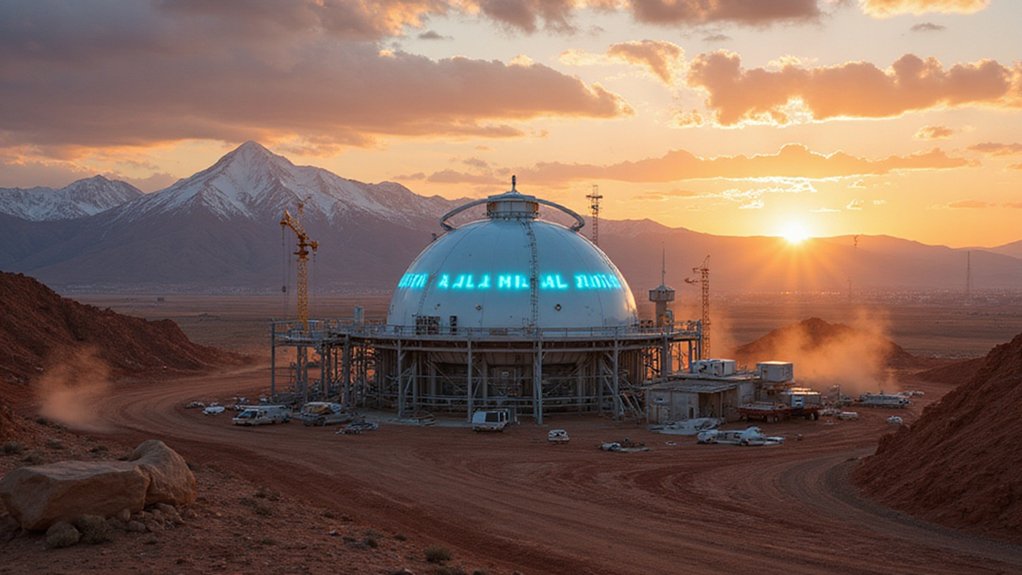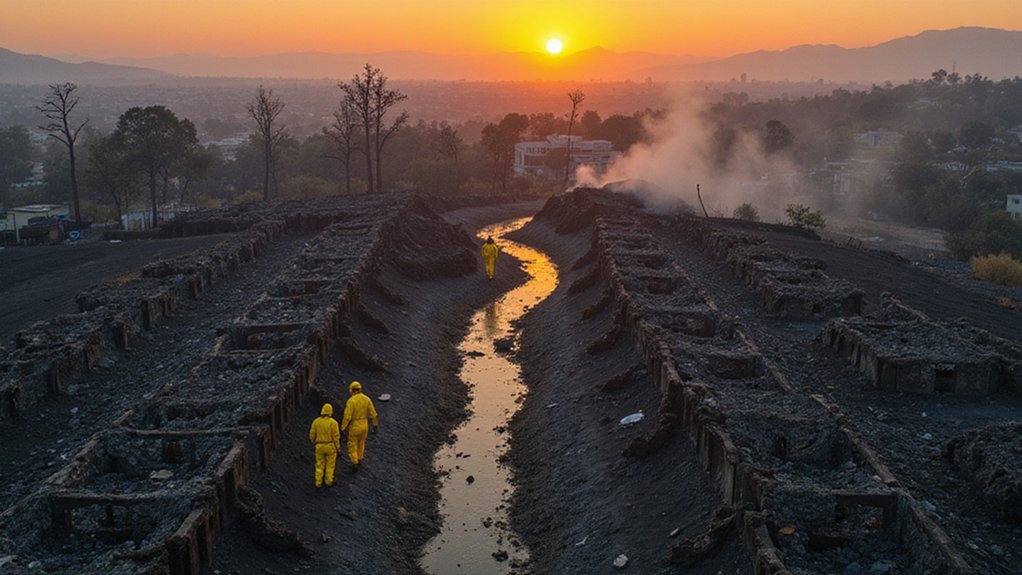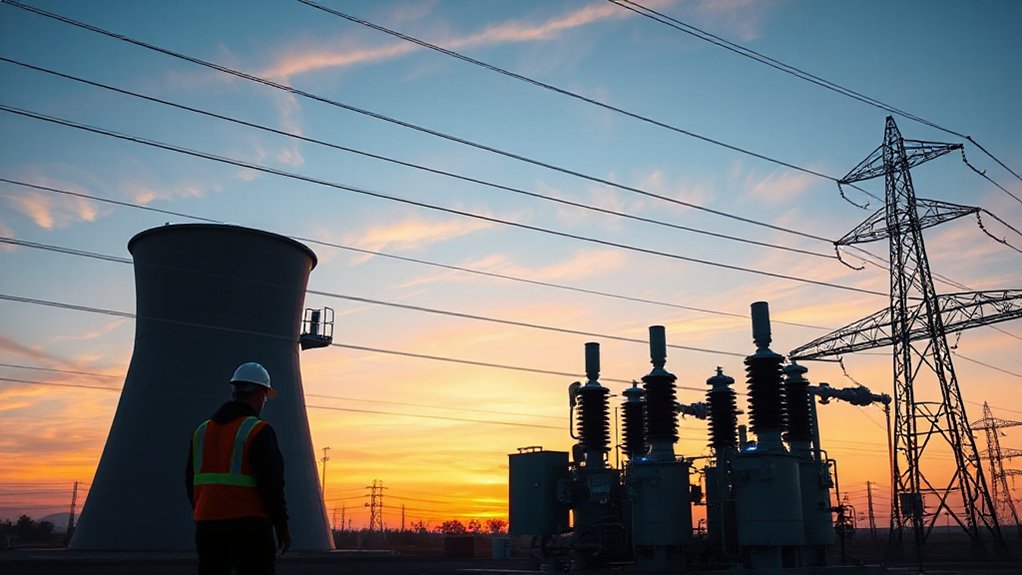PennEnergy threw in the towel on its water permits for Big Sewickley Creek, and environmental groups are celebrating like they just won the lottery. The company voluntarily surrendered its permits to pump water from the western Pennsylvania creek, though they’re keeping mum about whether they’ve found another water source. Typical.
Each fracking well needs between 9 and 18 million gallons of water. That’s a lot of H2O. The company claims about two-thirds gets recycled, but that still leaves millions of gallons coming from somewhere. This kind of intensive water usage mirrors the resource extraction concerns seen in renewable energy production. Nationally, the average fracked well uses about 4 million gallons – roughly what New York City goes through every six minutes. Let that sink in.
Millions of gallons per well, and that’s after recycling. Where’s all this water really coming from?
Critics had been pushing PennEnergy to draw from bigger waterways like the Ohio River instead of smaller creeks. Makes sense, right? But the company initially said no way, claiming they needed water sources close to their well pads to reduce truck traffic. Because apparently, convenience trumps everything else.
Big Sewickley Creek simply didn’t have enough flow for industrial withdrawal. The permits were initially denied because withdrawals threatened the southern redbelly dace, a fish species already in trouble. Watershed advocates called it a “beloved recreational area,” and they weren’t having it. The company had already cleared mature forest and built a gravel pad before reconsidering. Better late than never, I guess.
Katie Stanley, president of the watershed association, supported the permit surrender. Opposition groups argue using creek water for fracking is basically stealing natural resources for profit. Hard to argue with that logic.
Meanwhile, water contamination issues plague Pennsylvania’s fracking operations. Testing in New Freeport showed a tenfold increase in surfactants after a 2022 incident. Geologist Josh Hickman concluded “with reasonable certainty” that EQT’s fracking operations contaminated the water. Methane and ethane levels increased too. Studies have also found elevated radium levels in Pennsylvania wildlife linked to fracking activities, raising serious concerns about radioactive contamination spreading through local ecosystems.
EQT faces lawsuits over water quality but asked a judge to toss the complaints, claiming the statute of limitations expired. By one day. You can’t make this stuff up.
Pennsylvania’s Department of Environmental Protection issued 31 violations for shale gas well abandonment in early 2025 alone. Companies are ditching wells left and right, leaving cleanup costs to taxpayers. The industry’s making its mess and walking away. Shocking.
References
- https://insideclimatenews.org/news/29052025/pennsylvania-fracking-company-surrenders-water-permits/
- https://buckscountybeacon.com/2025/01/the-cleanup-bill-for-the-fracking-boom-is-already-here-in-states-like-pennsylvania/
- https://www.publicsource.org/pittsburgh-natural-gas-producer-eqt-fracking-shift-2025/
- http://paenvironmentdaily.blogspot.com/2025/03/diversified-production-llc-abandons.html
- https://pulitzercenter.org/stories/scrutiny-eqt-fracking-likely-shift-2025









